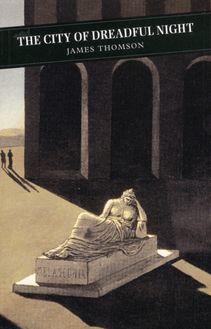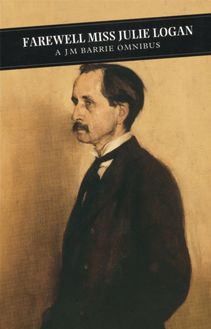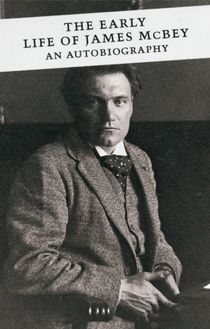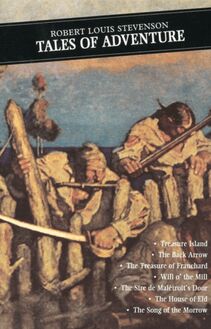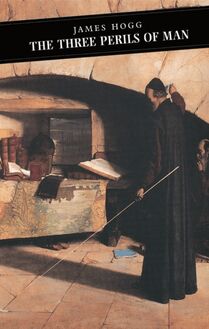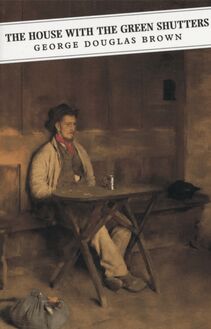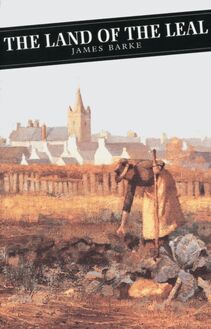Gowk Storm , livre ebook
101
pages
English
Ebooks
2010
Vous pourrez modifier la taille du texte de cet ouvrage
Obtenez un accès à la bibliothèque pour le consulter en ligne En savoir plus
Découvre YouScribe en t'inscrivant gratuitement
Découvre YouScribe en t'inscrivant gratuitement
101
pages
English
Ebooks
2010
Vous pourrez modifier la taille du texte de cet ouvrage
Obtenez un accès à la bibliothèque pour le consulter en ligne En savoir plus
Publié par
Date de parution
01 juillet 2010
Nombre de lectures
2
EAN13
9781847675446
Langue
English
Publié par
Date de parution
01 juillet 2010
Nombre de lectures
2
EAN13
9781847675446
Langue
English
Nancy Brysson Morrison
THE GOWK STORM
Introduced by Edwin Morgan
GOWK STORM : A storm of several days at the end of April or beginning of May; an evil or abstract obstruction of short duration
TO Tommy "We twa bae run about the braes, And pou’d the gowans fine …"
Contents
Introduction
Prologue
Book One
Book Two
Book Three
Book Four
Book Five
Epilogue
Introduction
Like Chekhov’s famous play, and even more like the real-life Brontës whose story she told in another book, Nancy Brysson Morrison’s The Gowk Storm is a tale of three sisters. These daughters of the minister, Mr Lockhart, are at the centre of the action, their closeness is emphasized, and when that bond is broken, first by the marriage of one of them and then by the death of another, considerable pathos results a pathos which is never overdrawn or sentimental and which encompasses tragedy without making the whole book tragic in its implications. The family goes through the fierce and destructive April storm of the title, suffers sharp loss, but emerges with one moderately happy marriage and the prospect of a second.
The device of having the youngest sister, Lisbet, tell the story by reminiscence, works well. She is the quiet one, intensely observent, sensitive, sympathetic and imaginative, and slips readily into the role of what she virtually becomes though this is not part of the story a novelist. The only drawback of the method is that one or two characters with whom Lisbet is not frequently in contact notably Stephen Wingate remain less fleshed-out than they might have been; on the other hand, the women rather than the men are the core of the story, and this is no doubt the way Morrison wants it to be seen. Lisbet has another function too. Although there is a Glasgow connection (the Strathern family is Glasgow-based, and the action returns to Glasgow at the end), the story is set on the edge of the Highlands near the Ochil Hills, and Lisbet’s vivid sense of her surroundings the manse, the loch, the hills and trees, the birds and flowers, the weather and the seasons creates an atmosphere that is both well-observed and yet deeply imaginative, brooding, suggestive, poetic. Her vision of the land is ‘saturated with memories and legends’:
‘I thought of it submerged under the sea, of the ocean receding farther and farther from it; and glaciers creeping down the mountains, forming the glens and ravines; of the mountains as spent volcanoes covered by the impenetrable Caledonian forest.’
And she has visions of the future history as well as the past history of the earth. On a visit to St Andrews with her sisters just before Julia’s marriage almost the last time the three were to be together in any real sense she imagines a desolate time to come:
‘When I saw the sweep of sky joining the sea at the pale horizon, I thought of the light, waning to wax, imprisoned in the globe of the world. And as my thoughts ebbed and flowed to the drow of the sea, I thought of the earth after millions of years when life has left it, like a shell worn with holes, filled only with windy vibrations …’
The use of the rare Scots word drow (for which in fact the Scottish National Dictionary quotes this passage) to describe the melancholy distant sound of the sea, and the strange MacDiarmidesque image of the earth as an old shell riddled with holes, are among several instances where this domestic story of ordinary human emotions and relations is suddenly opened out into wider realms of space and time.
But the human story prevails. Julia the eldest sister, tall and dark, with a quick mobile temperament, falls in love with the new dominie, Mr MacDonald, who is knowledgeable and kindly and apparently calm and well-balanced. Yet MacDonald is credited with second sight, and he lives inwardly as a doomed man, a man (as Julia once said, critically) ‘so sure of defeat he never went into battle’. Julia’s foreboding proves true: in the freezing April of the gowk storm, taking shelter with the dominie in an old shepherd’s hut, her head on his shoulder, she is horrified to see her father suddenly standing in the doorway, taking the whole situation in. She is even more horrified later when the dominie weakly says nothing and even begins to defend her father. MacDonald as Lisbet says, is ‘afraid of happiness’. Julia’s father forbids marriage, and MacDonald is dismissed from the school when it is discovered he is a Catholic. We can pity the schoolmaster; but when he slinks away at night, without trying to say goodbye to Julia, we feel that her father, narrow-minded and authoritarian as he might be, was not entirely wrong about the unsuitableness of the match. No comfort in this, of course, for Julia, whose mind in its sense of let-down and bitterness has ‘gone like ice’. This, at the end of Book Two, is the first climax of the novel. The second climax, at the end of Book Five, involves the second sister, Emmy. Julia’s crisis turned out to be a gowk-storm crisis, swift and bleak but not long-lasting; soon after it she marries Edwin Strathern, a widower with two grown-up sons and a grown-up daughter, and despite the difference of age and absence of passion, she settles down to an acceptable existence. Emmy’s crisis, however, although it also takes place at a wet and stormy time, is not specifically identified with the gowk-storm, nor it is allowed any escape from disaster.
Emmy has a most attractive impulsiveness and directness of character, yet she is the only one in the book’s plot to have a human enemy (the jilted locum, Mr Boyd, who has his nasty revenge), so that her desperate love and eventual death produced that sharp but controlled pathos which is one of Morrison’s characteristic notes. Emmy, unhappily in love with Wingate, her friend Christine’s fiancé, is ‘uncompromising’, ‘resolute and ardent’, ‘more alive than other people’, and somehow vulnerable as her quick head movements toss the ‘bright little curls on either side of her gay face’. The increasingly moody Wingate, irritated and bored by the clinging attentions of the pretty but vacuous Christine, whose indeterminate features are ‘like a wax-doll’s which have melted ever so slightly at the fire’, breaks off his engagement. When Emmy who is in love with Wingate, and Julia who distrusts him, hear of this, there is a dialogue which shows Morrison at her most crisp and pungent:
‘If you had become engaged to him and his feelings changed, you would rather he married you than told you?’
‘Good heavens, no; but Christine would.’
‘That’s not the point. The point is that what Stephen Wingate has done is either right or wrong; the person to whom he was engaged makes no difference.’
‘Don’t look at me like that. I can’t help it. I’ve had nothing to do with it.’
‘But isn’t it?’
‘Isn’t what?’
‘Isn’t it either right or wrong to break off your engagement when your feelings change?’
‘I’ve not got an impersonal brain like you, Emmy.’
‘It has nothing to do with impersonal brains. It has to do with right and wrong.’ She began to tremble.
‘I’m not Stephen Wingate’s accuser, nor am I his defender. His own conscience will tell him whether he’s done right or wrong.’
‘You were accusing him just now.’
‘I was accusing him no more than you were defending him. Emmy.’
‘That’s a lie.’
‘Emmy, don’t,’ mamma cried.
‘Say you don’t like him now after this has happened, but don’t say now you never liked him, for it isn’t true and you are merely deceiving yourself.’
Julia stood gazing fixedly across the table at Emmy’s face.
‘I’ll tell you one thing’ she said slowly, after a long pause, ‘that man and his emotions are not to be depended upon. He’s shown that clearly. If he can do this kind of thing once, he can do it again.’
The hapless Christine drowns herself, and Julia’s distrust of Wingate shows itself to be at least partially justified, though not wholly, when he devises a complex and desperate scheme to elope with Emmy, marry her by declaration before a witness, and sail off with her to rejoin his regiment in India. The elaborate logistics of the whole operation might just have worked, but for the sly machinations of the abominable Boyd. The painful realism of Emmy’s fruitless search for some conveyance to take her to the rendezvous in time, and her fatal trudge on foot through wind and rain, are the most affecting part of the novel.
Even after she was dead, her face quivered and the pulse in her neck leapt, as a feather sometimes gives semblance of life.
The Scottishness of the book is nicely managed through a combination of Scots-speaking characters (Nannie, Mrs Wands, the kirk elders) and a narrative voice which is in general English but which uses many Scots words quite naturally, somewhat in the tradition of John Galt (e.g. swee, fliped, Cloutie, craikie, creepie, howffs, gangrel, tirled, fank, sheiling, kelpie, wridy, scaurs, eardmeal). Scottish country superstitions are given an airing on several occasions, usually to be undercut by the robust common sense of Julia and Emily, but perhaps also to induce an intermittent suggestion of fateful forces working behind human affairs, as if the author had not quite made up her mind on this point. Even the last sentence of the book, simple though it is, has a thought-provoking ambiguity. As the carriage taking the Lockharts to Glasgow passes through the village, Lisbet looks back:
The last glimpse I had of it was of the raised, hummocked graveyard on the hill, with its grey gravestones all blankly facing east.
The gravestones face to the east as an outward sign of the Christian hope of resurrection, but the fact that they stare ‘blankly’ seems to reduce the hope. The reader may also remember that Stephen Wingate, heart-broken in India, is himself in the east, leaving behind two buried women whose deaths he had unwittingly contributed to. Any suggestion of a reference to Wingate could only be a sub-text, but the fact that it can even c
